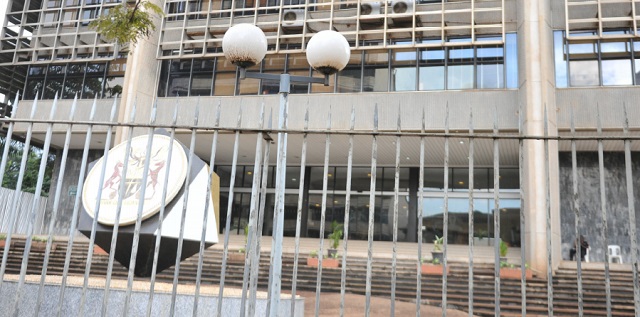
Can Mutebile’s latest announcement and government spending plan save the economy hurt by coronavirus lockdowns?
| JULIUS BUSINGE | On June 16, Bank of Uganda Governor, Emmanuel T. Mutebile made a big announcement that many pundits believed would boost economic recovery.
For the first time in many months, Mutebile cut the policy interest rate, the Central Bank Rate to 6.5% from 7%, the lowest mark ever since the rate was introduced in 2011 to tame inflation under what experts refer to as ‘inflation targeting lite regime.’
The highest it (CBR) has ever reached is 23% in December 2011. At that time, inflation had jumped to slightly over 30%, the highest since 1993.
Interest rates too had crossed the 30% mark. But, as Mutebile reduced the policy rate in line with the downward inflation trend curve, interest rates followed suit.
According to BoU data, the average commercial bank lending rate was 18.9% in the quarter to April 2021, almost the same rate (18.1%) reported in the quarter to Jan-2021.
Movements in inflation and interest rates partly determine how well or badly an economy performs.
According to Uganda Bureau of Statistics data, headline inflation declined from 2.1% in April to 1.9% in May 2021. Core inflation, which is the target for monetary policy rose slightly to 3.1% from 2.9% mainly driven by transport costs.
BoU predicts that headline inflation is expected to remain relatively subdued but to return to the 5% target in the medium-term. And core inflation is expected to average 3.3% in 2021 and 4.4% in 2022, before gradually returning to its medium-term target of 5%.
Experts at Bank of Uganda look at the demand side of the economy or controlling money in circulation, while government manages the supply side or fiscal policy involving spending of money.
Pundits say, in tough times like these of COVID-19, the two sides have to balance their strategies to keep the economy alive.
Mutebile’s junior executive, Adam Mugume, who serves as the Executive Director for research, said moments after the announcement that the BoU expects commercial banks to respond “because we are watching.”
Mugume was optimistic that banks would reduce interest rates given that they (banks) will be conducting business with the Central Bank among them including borrowing at 6.5%.
Mugume is also banking on the past experience where some banks have lowered interest rates to as low as 15% per annum today down from the highs of 30% 10 years ago in line with BoU’s monetary policy announcements.
Banks agree to meet
In an interview with The Independent, Wilbrod Owor, the executive director at Uganda Bankers Association agreed with Mugume but did not promise much.
“Ideally the reduction in the CBR would mean a downward review of lending rates to stimulate growth in the economy,” he said, “but we are in a difficult situation of high non-performing loans and subdued economy.”
He said most non-performing loans are recorded as such to date because several sectors like education, transport, trade are currently underperforming because of the partial coronavirus induced lockdown.
He said, banks were planning to schedule a meeting to review BoU’s monetary policy action in line with their market strategies to come up with resolutions that are good for all players in the economy.
“We would like to support the economy to recover…but you cannot expect a uniform response because individual financial institutions differ,” Owor said.
Economic experts are advancing divided opinions on these developments.
And the big question now is; how best can Mutebile’s monetary policy action work with the government’s COVID-19 fiscal recovery expenditure and commercial banks’ market interests?
Corti Paul Lakuma, a research fellow at the Economic Policy Research Centre at Makerere University told The Independent, that Banks might respond by lowering their interest rates going forward not because of the strength of the central bank but because they are stuck with money.
“There is limited economic activity, people are saving…and that means banks might want to attract borrowers…that could partly be one of the reasons,” he said on June 17.
If that happens, Lakuma said, it could partly support fast recovery of the economy.
Lakuma said going forward, authorities must work towards rectifying the financial market to have a level playing field for both indigenous and international banks for monetary policy signals to yield results.
Lakuma insists, that a reduction in interest rates alone may not entirely cause a fast recovery of the economy unless everybody does their part.
“The Central Bank has done its part,” he said. He added that those in charge of revenue collections must deliver results, and those in charge of spending what is collected must to it carefully to revamp the shaky economy.
BoU and Uganda Bureau of Statistics data indicates that the high frequency indicators of economic activity indicates that the momentum of economic activity for the quarter to May 2021 was moderate.
Data indicates that economic growth of 3.3% in FY2020/21 is slightly higher than initial projections of 3.1% owning primarily to stronger household consumption. However, data indicates that contraction in private sector investment is persisting partly reflecting heightened COVID-19 induced uncertainties. The GDP growth outlook remains unchanged at 4.0-4.5% in FY2021/2022.
 The Independent Uganda: You get the Truth we Pay the Price
The Independent Uganda: You get the Truth we Pay the Price



